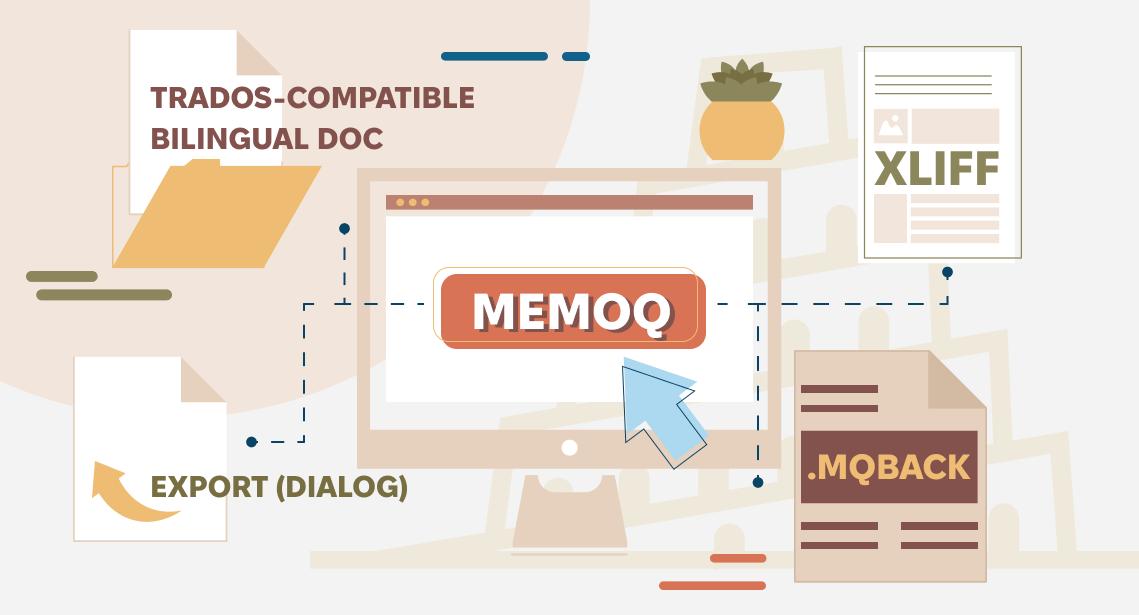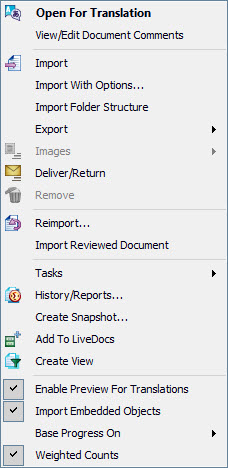our blog

Quick memoQ reference on creating different types of files

This is a quick reference for creating different types of files in memoQ. The file is supposed to already be translated
All commands mentioned below are accessible from the dialog window that appears after right-clicking a file on the Project home tab in memoQ interface.

- How to create .mqxlz file:
– Right-click the memoQ file > Export > Export Bilingual > memoQ XLIFF - How to convert memoQ file into Trados-compatible format (as if it was translated in Word with Trados 2007):
– Right-click the memoQ file > Export > Export Bilingual > Trados-compatible bilingual DOC - How to create .mqback file in memoQ:
– Right-click the memoQ file > Deliver/Return - How to create clean file in memoQ:
– Right-click the memoQ file > Export > Export (Dialog)
Recommended content

How to get rid of the “Attempted to divide by zero” error in MultiTerm
This error appears not only in Trados Studio We wrote about the Attempted to divide by zero error in Trados Studio before, and now it has been caught by MultiTerm, a free app for processing termbases. The error appears right during simple scrolling through term records. What causes this error, typically, is unknown, but it […]

How to translate TXLF Wordfast files in Trados Studio
Trados Studio can be used to translate .txlf Wordfast files If you do not have or do not like or do not work in Wordfast, you can translate its files in Trados Studio. Trados Studio knows well how to process different file types (Word, Excel, HTML and many, many others). To teach your Trados Studio to work with TXLF Wordfast files means to […]

How to get rid of the “Failed to load built-in plugin(s)” error in Xliff Editor
Unfortunately, errors happen in every program We have caught a new error, this time in Xliff Editor, a text editor included in the Translation Workspace software package. Here’s what it looks like: Failed to load built-in plugin(s): Failed to activate the plugin: … reason : … * * * The error happens due to the wrong configuration of […]

Some useful keyboard shortcuts for Excel
Some extremely useful keyboard shortcuts for Excel Some useful keyboard shortcuts for Excel: See this post in our Telegram channel.

How to solve the «Not all items could be loaded. Duplicated source» issue on Xbench
A piece of information on how to solve the issue on Xbench If Xbench reports that Not all items could be loaded due to some Duplicated source after importing a MQXLZ or MQXLIFF file from memoQ, it means that the problem is not in memoQ, but in Xbench. Neither memoQ nor Xbench crashes in this […]